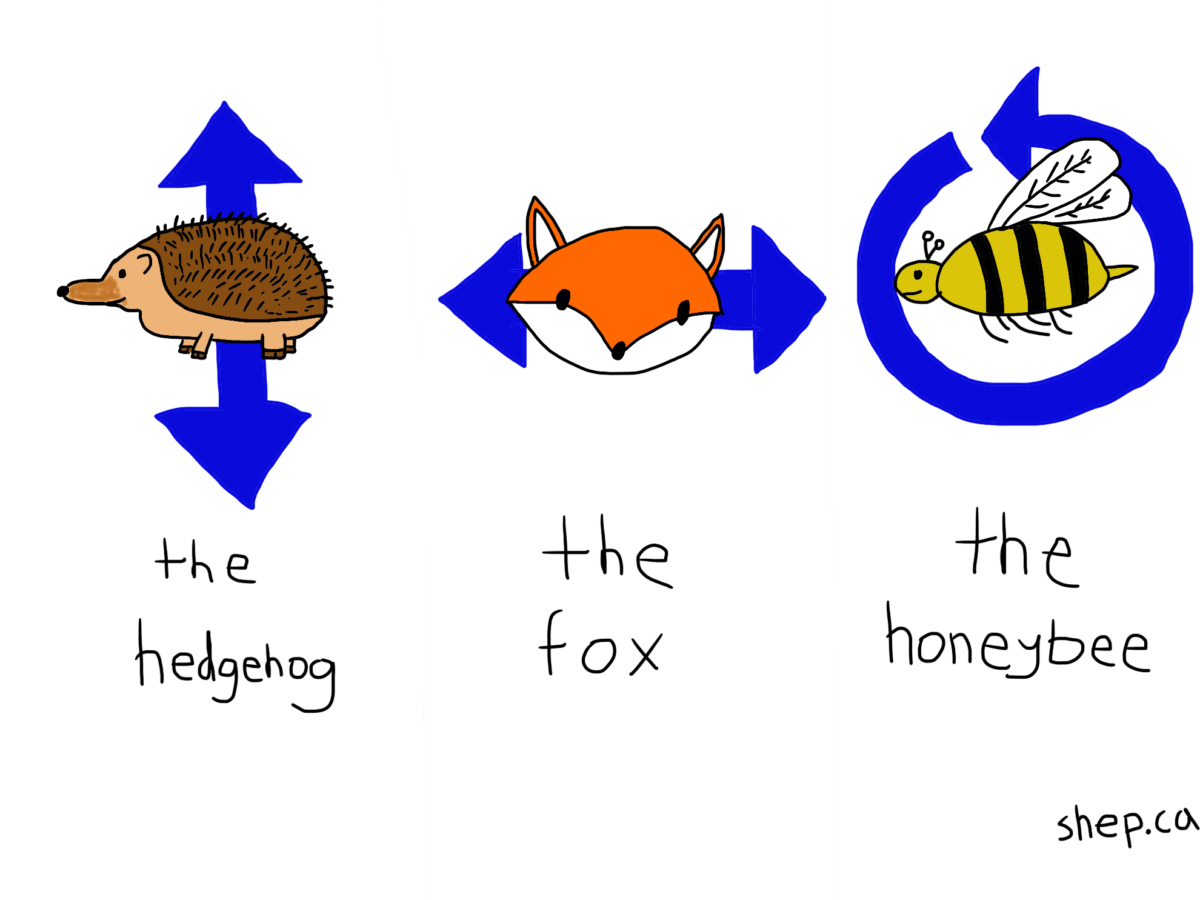Something short this week. This has rattled around in my head for about five years, and I’m finally writing it down.
Prior to starting at the law faculty, I had very limited exposure to academia. I was in for-profit marketing / advertising, where there were a lot of terrifically brainy people, but we all tended to be the same kind of brainy: fast-thinking, creative, aggressively innovative, think-around-the-problem types. Succeeding in advertising requires a lot of different things, but optimally rapacious curiosity and the ability to take vast amounts of information on board in a hurry. If you don’t understand the client and the client’s business to a fair degree of acumen pretty fast, you’re not going to be able to help them.
Academia was definitely not the first time I’d met another kind of brainy: dogged, deep, and intense thinkers in one very finite area, but not necessarily interested in or curious about others. I started thinking more about types of brainy, and landed here. It turns out there are lots of ways to think about this, and probably some folks have got this down to a different and better degree than I do, but on a cursory Internet search, it doesn’t look like there’s a definitive take on this. So here’s mine:
Intelligent is deep, but not wide. “The fox knows many things, but the hedgehog knows one big thing,” as Isaiah Berlin said, then later regretted saying because people kind of ran away with it. I’m one of those people, because he was originally writing about lenses for political philosophy and here I am further bastardizing it with this small bit of nonsense. Intelligence is the hedgehog trait. An intelligent person who is very interested in the history of woodworking can tell you when the first lathe was created or the average width in microns of a sharpened chisel… or not, if they’re interested in going really deep in a woodworking subset, in which case they might be absolute geniuses at wood grain but know nothing about how a table saw works.
Smart is wide, but not necessarily deep. Smart is the fox trait. Smart people know a lot of stuff, and have a crazy huge sampler tray of knowledge to draw from. A smart person could know that the reason your microwave isn’t turning on is that the turntable is broken, but also the evolutionary path of the platypus and where we’re at as a species on the path to colonizing Mars. Smart people do well at trivia night.
Clever is wiggly, and belongs to neither foxes or hedgehogs, but aligns itself more with foxes. Let’s call it the honeybee trait: honeybees, like many foraging species, use chaotic patterns to optimize food searches. They’re seemingly all over the place, but in a way that ultimately serves a goal. A clever persion might look at your broken microwave and use their knowledge of a systems planning process for a Mars mission to devise a way to figure out what is wrong with the microwave, and apply their understanding of the history of the lathe to tinker with the broken turntable inside it.
Nobody is only ever one thing. Intelligence, smarts and cleverness exist in everyone, in unique mixes. In my experience, they also wax and wane with time. I would say I am more clever than smart or intelligent, at the end of the day, but can find myself sliding into long periods of intense interest in a single subject, and crowd out most of my brain with a single point of focus. Similarly, I can get sick of something and spend weeks dabbling in various ideas, and dip into a dozen different areas of knowledge.
Clever seems to be the most baked-in trait: you’re either curious and prone to lateral thinking, or focused and not given to crossing mental wires. There’s no good or bad to it; lateral thinking can lead to disasters as well as successes (“I bet I can fix this fusebox with that piece of chewing gum” is lateral thinking, but also dumb as hell).
That’s it. No grand thesis of life, just some categorization that’s been rattling around in my head for half a decade, waiting to get written out. Intelligent, smart, clever: the hedgehog, the fox, and the honeybee.
